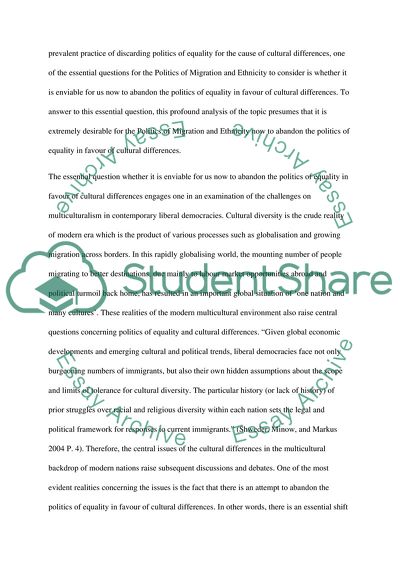Cite this document
(Abandoning the Politics of Equality in Favour of Cultural Differences Essay, n.d.)
Abandoning the Politics of Equality in Favour of Cultural Differences Essay. Retrieved from https://studentshare.org/sociology/1721878-is-it-desirable-for-us-to-now-abandon-the-politics-of-equality-in-favour-of-cultural-differnces
Abandoning the Politics of Equality in Favour of Cultural Differences Essay. Retrieved from https://studentshare.org/sociology/1721878-is-it-desirable-for-us-to-now-abandon-the-politics-of-equality-in-favour-of-cultural-differnces
(Abandoning the Politics of Equality in Favour of Cultural Differences Essay)
Abandoning the Politics of Equality in Favour of Cultural Differences Essay. https://studentshare.org/sociology/1721878-is-it-desirable-for-us-to-now-abandon-the-politics-of-equality-in-favour-of-cultural-differnces.
Abandoning the Politics of Equality in Favour of Cultural Differences Essay. https://studentshare.org/sociology/1721878-is-it-desirable-for-us-to-now-abandon-the-politics-of-equality-in-favour-of-cultural-differnces.
“Abandoning the Politics of Equality in Favour of Cultural Differences Essay”. https://studentshare.org/sociology/1721878-is-it-desirable-for-us-to-now-abandon-the-politics-of-equality-in-favour-of-cultural-differnces.


